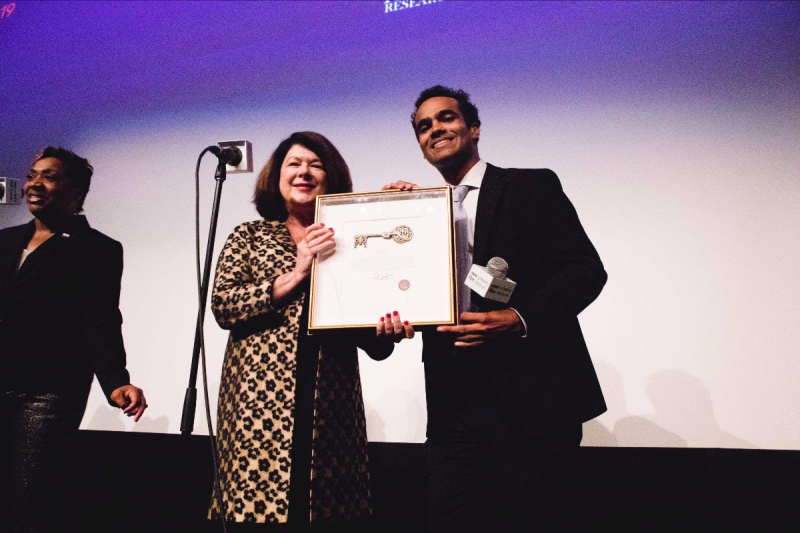"Burning Cane" Director Phillip Youmans Receives Key to New Orleans

However, "Burning Cane" failed to win any other awards at the 30th Annual New Orleans Film Festival
Going into Saturday night there was a lot of hype surrounding Burning Cane, the directorial debut of New Orleans native Phillip Youmans that is set to be available November 6 on Netflix. Phillip Youmans is the youngest director to have a film accepted to the Tribeca Film Festival; moreover, his debut won the Founders Prize and the prize for Best Cinematography at Tribeca.
Even my ridesharing driver to the Saturday night screening, a New Orleans native by the name of Richard, recognized Burning Cane as, “The one directed by that 19-year-old” despite Richard having zero plans to attend NOFF.
Hype amongst New Orleans residents reached its apex when NOFF staff presented Youmans with a key to New Orleans shortly before a screening of Burning Cane began. From there, I only felt worse and worse for those who spent $25 per ticket to the showing. When the NOFF team released the Jury Award Winners three days after the Burning Cane Saturday screening, nobody from the Burning Cane team recieved any awards or any notable mentions by the event at which director Phillip Youmans received the key to the city.
Unfortunately for Youmans, the biology of a smoking habit can really take over when Burning Cane decides to fill nearly every frame of a 77-minute runtime with high def depictions of smoking. Burning Cane is superbly acted cigarette porn and I wish that was more of a joke than it is. Comedy aside, every cast member performs their scenes well and Wendell Pierce deserves the praise he’s already received for his powerful performance as a troubled, alcoholic preacher.
After the absolutely gorgeous opening scenes of Karen Kaia Livers butchering a chicken, the plot failed to remain interesting with its overreliance on depicting various forms of alcohol-fueled domestic abuse and utter lack of thematic direction. What Burning Cane tries to say, if the film really is trying to say anything, comes wrapped in an allegory of a dog with incurable mange. The resolution comes out of the barrel of a shotgun.
The cinematography redeemed some aspects of the film, particularly the experimental use of darkness and murkiness. However, if I have one gripe about how the scenes played out, it was the “in focus, out of focus” ping-ponging that threatened me with a headache and didn't feel deliberate enough. I get it. The characters in Burning Cane are typical residents of Louisiana and drunk for half the day. Still, Youmans needs to go easy on the auto-focus or needs to find a way to keep his subjects in focus more consistently.
As the credits rolled, the applause came sporadically and ended weakly before the audience made a beeline for the door. After, I commiserated with those smoking outside the Orpheum Theatre. An older gentleman in attendance sourly called Burning Cane “fucking boring” as he lit a Marlboro while a college-aged woman sipping on a rolled cigarette said to her friend, “I really wasn’t aware of my habit until I saw that. Do I really smoke that much?”
Don’t get it twisted: Burning Cane isn’t a bad film and is a strong directorial debut by a 19-year-old independent filmmaker. While it’s not perfect, there are far worse things to watch on Netflix where everything comes as part of a subscription and a $25 ticket isn’t required to attend.







